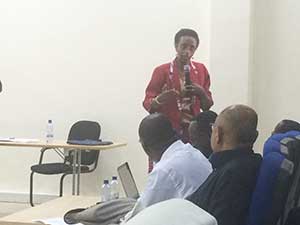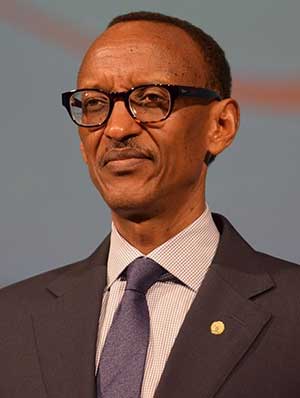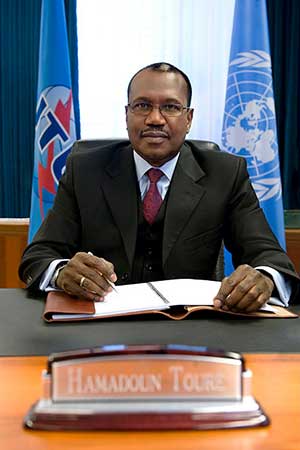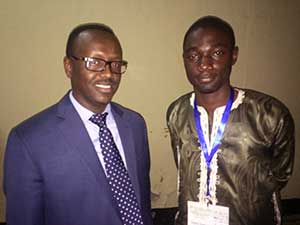Shaping Africa by Education and Information and Communication Technology
Christine Darve
Nothing is more amazing than the cultural diversity you encounter when you are at Istanbul airport, in the city between 2 continents. Like the large and growing diversity of the population, new societal challenges are also growing.
In the case of Africa, two different scientific solutions to societal challenges are of great interest: Education and ICT, Information and Communication Technology. The African population diversity and current geo-politics have created a complex environment in which to develop sustainable scientific achievements. Assuming that raising the standard of life in this vast continent will lead to a more stable world, then action must be taken right away.
Rwanda has become an interesting model. Following the 1994 genocide, twenty years of reconstruction have led to a new era. Economic growth is the second highest in Africa in 2016 and has advanced the country from a world ranking of 157 to 50. In addition to international support implemented in a rational manner, and security enforced throughout the territory, a major driver in this dramatic improvement is the rise of ICT.
Connecting Africa and enabling cheaper communication is a catalyzer to this progress. Also Africa has an amazing potential of youth to educate and develop ICT, the technology tools for tomorrow.
Rwanda University has been hosting international events that have demonstrated the country’s commitment to promote science. Among several events (with over 100 participants), the University of Rwanda’s College of Sciences and Technology just hosted the fourth biennial African School of Fundamental Physics and Applications, ASP2016, from August 1 to 19. (see the group photo in this newsletter issue)
Prof. Manassé Mbonye, the Principal of the College of Sciences and Technology, has announced that the University of Rwanda will host the fifth branch of the International Centre for Theoretical Physics, ICTP, based in Trieste, Italy. The new “East African Centre for Fundamental Research” will support activities throughout Africa.
Like the mission of the ICTP as well as that of ASP, AIMS (the African Institute of Mathematical Sciences), contributes to foster science in Africa. AIMS was founded in South Africa in 2003 by Neil Turok (born in South-Africa). AIMS has expanded to Senegal, Ghana, Cameroon and Tanzania, and recently to Rwanda with which a partnership agreement was signed on April 2, 2016, to train talented African scientists.
Education and innovation can address further difficulties. For instance, solar energy is a source of reliable and accessible electricity and can meet the community needs in a country like Rwanda, where 28 % of the population is connected (24% on grid connection with additional 2% on solar power) and have access to electricity, as of 2016. The projection for 2018 stands at 70% (22% of which will be solar-powered) access to electricity.
Dr. Marie-Christine Gasingirwa, Director-General of Science, Technology and Research at the Ministry of Education, and a member of the local organizing committee of ASP2016, cited education as a key to limit poverty and discrimination. Beyond the growing involvement of women in the Rwanda government (64% of the seats held by women in parliament) and in the sector of micro-financing, she illustrated the capacity to build based on science. She recalled the case of local grandmothers, who were sent to India for six months in 2012 to train as fully qualified solar engineers:
“The training was provided through a partnership with Barefoot College in Tilonia, India, and implemented within the framework of several local (Rwanda) organizations such as URUGO, Safer Rwanda as well as the UNESCO Man and the Biosphere (MAB) program. After their return to the village in Rwanda, they installed the equipment for the school and houses, provided improved access to energy and security, and thus raised the quality of life for the whole community. They also gained the respect and recognition of their constituents due to the pragmatic attitude they learned.”
Those initiatives and innovations connect and transform the African landscape. Another vector of growth is the financial setting. The financial sector has been growing in recent years, and its stability, structure and efficiency has improved considerably in Rwanda and the rest of Africa.
“Investment in ICTs is essential in taking any country to the next level of productivity and efficiency. Investing in ICTs is not at the expense of other sectors. Investing in ICTs results in benefits for every sector and the earlier you start the better”
Going beyond connecting Africa, one of the missions of the newly established “Smart Africa,” based in Kigali, is to transform Africa by setting ICT at the center of national socio-economic development to promote a sustainable new era in Africa. Among large-scale innovative commitments, this organization facilitates the creation of new jobs supported by the development of 21st century skills. It also supports African students pursuing degrees and certifications at recognized centers of excellence throughout Africa that focus on ICT.
In other words, it sets a SMART objective, (Specific Measurable Assignable Realistic & Time-bound), which leaps towards greater integration of the African continent. Dr. Hamadoun Touré, the founding Executive Director of Smart Africa, is the former Secretary-General of ITU, the International Telecommunication Union. He is a driving force of ICT in Africa. Touré made a presentation at ASP2014, the third in the series, at Cheikh Anta Diop University in Dakar:
“Information and communication technologies are of crucial importance to all scientists around the world, and especially in Africa. Without ICTs, we cannot properly share large volumes of information, collaborate effectively, engage in technology transfer, or harness the power of grid computing. We have seen very solid progress in terms of increased internet use in sub-Saharan Africa, with more than two and a half times as many people online at the end of 2014 as there were at the end of 2009. The ICT sector in Africa has experienced quite extraordinary growth in recent years, especially in terms of mobile cellular communications – with penetration rates in sub-Saharan Africa almost doubling in the past five years, to reach 69.3% by the end of 2014. For instance, in Senegal, there are almost as many mobile cellular subscriptions as there are inhabitants. However, there is no denying that we still have far to go – with four fifths of people in sub-Saharan Africa still offline at the end of 2014. That’s four fifths of the people on this fine continent who are denied access to the incredible wealth of knowledge and richness that the Internet can bring into our lives - and four fifths of the population that cannot properly engage in scientific research and innovation.”
Education and ICT can be seen as the driver of the African future. An example has been ITU financial support to 5 young men and 5 young women from the Least Developed Countries during ASP2014.
“In Africa, in the 21st century, it is not enough to be smart; you need to be digitally smart.”

Dr. Marie-Christine Gasingirwa at ASP2016

H. E. Paul Kagame, President of the Republic of Rwanda
Chairman of the Smart Africa board (from Wikipedia)

Dr. Hamadoun Touré (from Wikipedia)
Smart Africa is setting the goal. Dr. Didier Nkurikiyimfura, Senior Director at Smart Africa and former Director-General of ICT at the Rwanda Ministry of Youth and ICT, said that the optical fibers installed in Africa have transformed the African continent. Nkurikiyimfura explained:
“The Smart Africa board is composed of 13 African presidents, ITU’s new Secretary-General and the African Union Commissioner for Infrastructure & Energy. One of the organization mandates is attract investment and leverage partnerships between governments, banks (World Bank, African Development Bank), the private sector, industries, and academics to transform Africa. “The strategic vision of this new-born organization is bridging the gap towards a new digital and safe era.”
The actors for the transformation of Africa are proactive; they are also composed of the young talented scientists, who are attending African schools, like Défi junior Jubgang Fandio, Cameroon, who is studying “Elliptic solitons in optical fiber media.”
Progressively, education and ICT are shaping new perspectives for Africa. Their success permits us to foresee a transformation of the African society and the opening of a new venue to raise the standard of our world.

Dr. Didier Nkurikiyimfura and Defi junior Jubgang Fandio at ASP2016
Christine Darve is an Engineering Scientist in the Accelerator Division of the European Spallation Source in Lund. Dr. Darve has been the main organizer of the first biennial African School of Fundamental Physics and Applications. She is also a past member of FIP’s Executive Committee.
